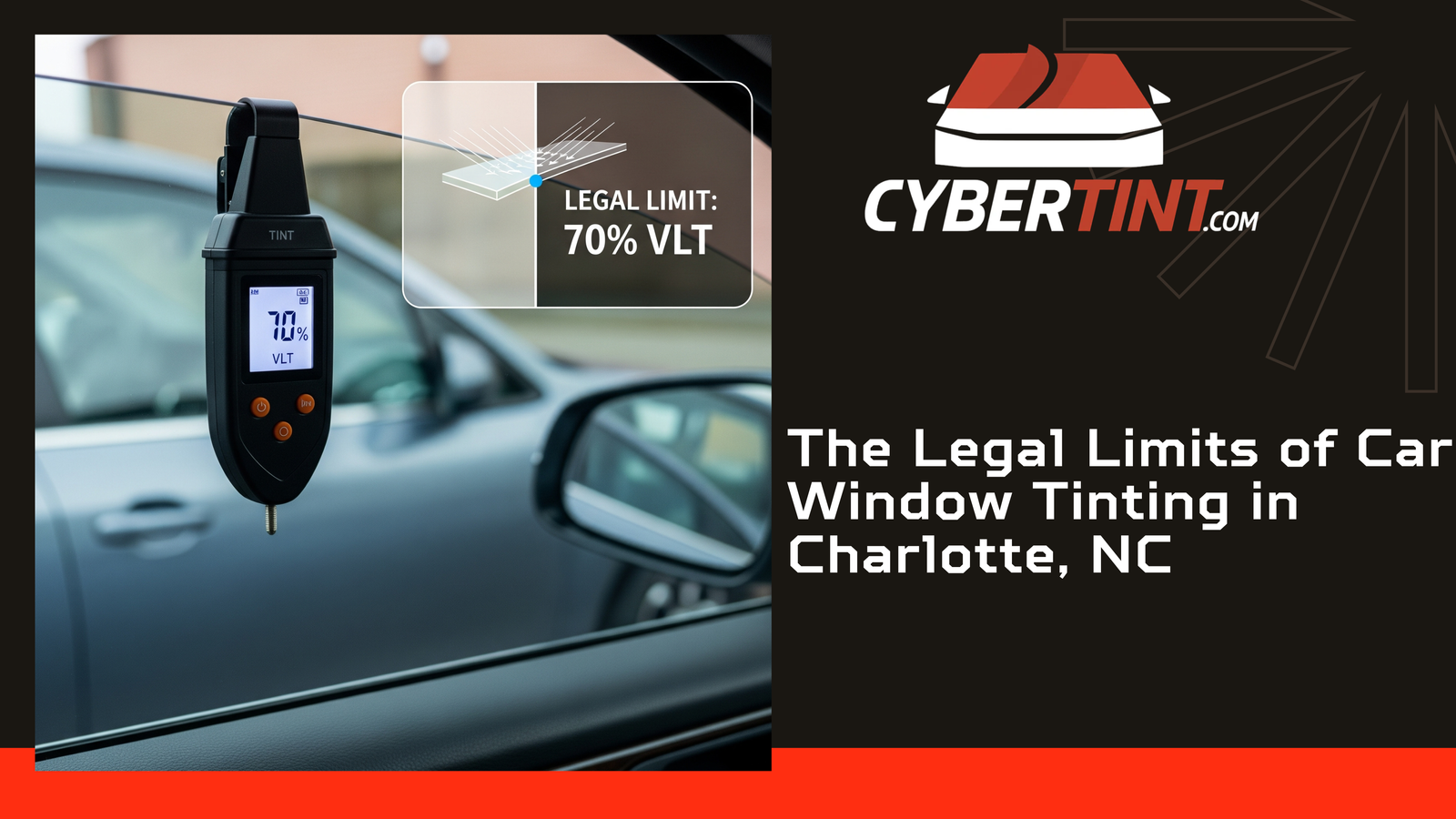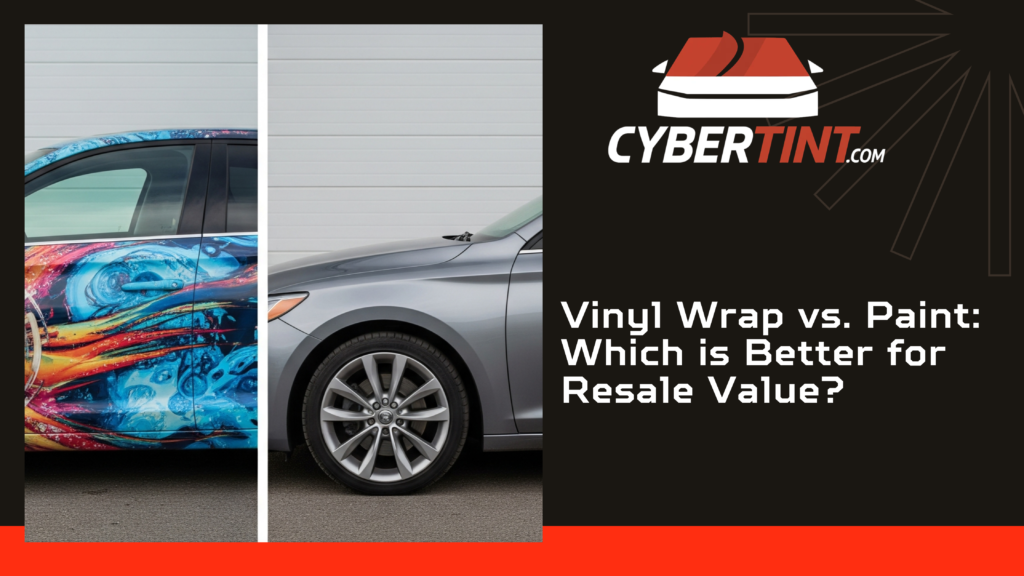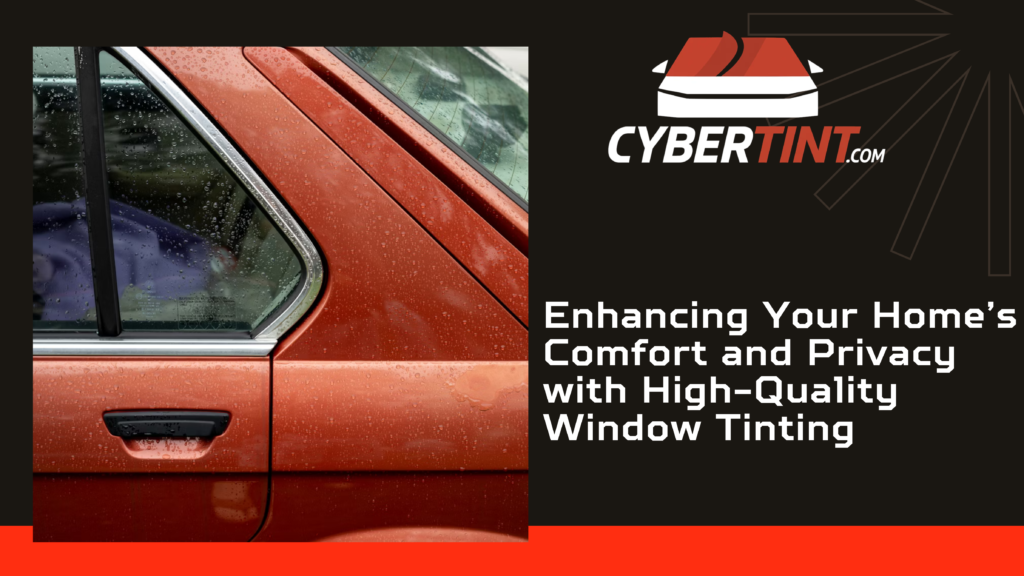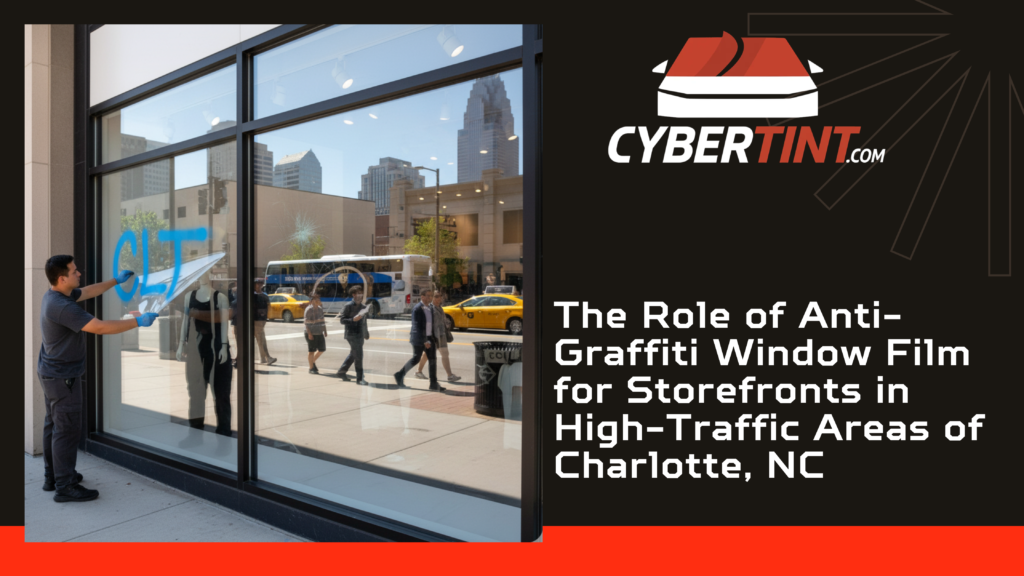Car window tinting can enhance your vehicle’s appearance, increase privacy, and block harmful UV rays. However, if you live in Charlotte, North Carolina, it’s important to understand that window tinting is regulated by state law. Applying a tint that’s too dark or reflective can result in fines and penalties. This guide explains the legal limits for car window tinting in Charlotte, NC, helping you stay compliant while enjoying the benefits of tinted windows.
Understanding North Carolina’s Window Tinting Laws
North Carolina has specific regulations on Visible Light Transmission (VLT), the percentage of light allowed to pass through your car’s windows. This varies based on whether you’re tinting your front side windows, rear side windows, or rear windshield.
Legal VLT Limits in North Carolina:
- Front Side Windows: Must allow at least 35% of light in.
- Rear Side Windows: Must allow at least 35% of light in.
- Rear Windshield: Must allow at least 35% of light in.
- Windshield: Tinting is only allowed above the manufacturer’s AS-1 line or the top 5 inches, whichever comes first.
Reflective Tint Restrictions
North Carolina also regulates how reflective your tint can be to reduce glare and prevent dangerous reflections.
- Front Side Windows: Cannot be more than 20% reflective.
- Rear Side Windows: Cannot be more than 20% reflective.
This means high-mirror or chrome-like tints are generally not allowed.
Medical Exemptions for Darker Tint
Some drivers may qualify for medical exemptions allowing darker tint levels than the law normally permits. These exemptions are typically granted for conditions such as:
- Photosensitivity
- Lupus
- Skin cancer risks
To obtain an exemption, you must apply through the North Carolina Division of Motor Vehicles (DMV) and carry the approval documentation in your vehicle at all times.
Penalties for Illegal Window Tinting in Charlotte, NC
Installing a tint darker or more reflective than allowed can lead to:
- Fines: Typically starting at $50–$100
- Court Costs: Additional fees may apply
- Mandatory Tint Removal: You may be required to remove illegal tint to comply with state law
For repeat violations, penalties can increase significantly.
Why Staying Legal Matters
While some drivers choose to risk a darker tint for style or privacy, the downsides can outweigh the benefits. Staying within the legal limits helps you:
- Avoid expensive tickets
- Pass annual vehicle inspections
- Maintain safe visibility while driving
- Reduce interactions with law enforcement
Additionally, legal tinting still offers plenty of benefits, such as reducing glare, protecting your interior from UV damage, and keeping your car cooler in summer.
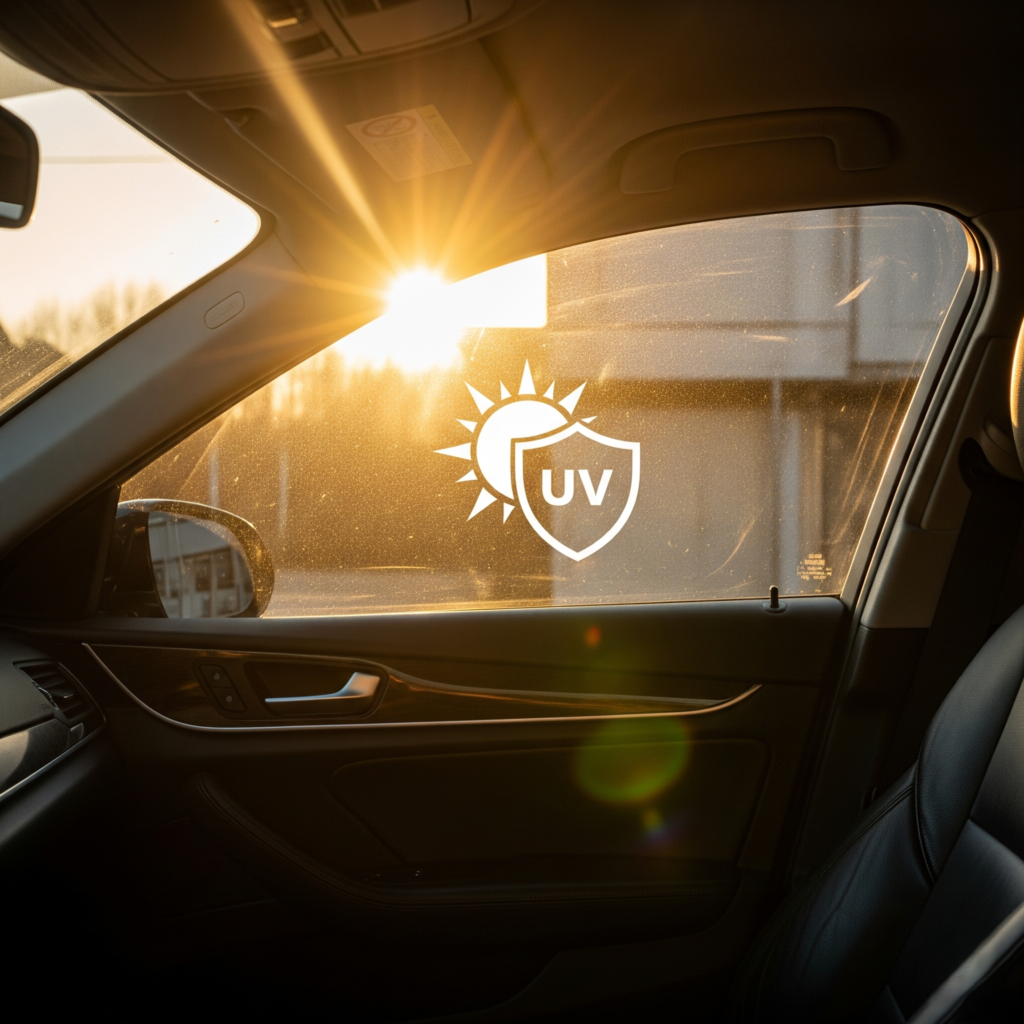
Choosing a Legal and Quality Tint in Charlotte
If you’re ready to tint your windows, consider these tips:
- Work with a Certified Installer: Professionals understand state laws and can recommend compliant options.
- Request a Tint Certificate: North Carolina requires installers to provide a certificate verifying your tint’s VLT percentage.
- Check Warranty Options: Quality tints often come with warranties that protect against bubbling, peeling, and fading.
Frequently Asked Questions About Tinting Laws in Charlotte
Q: Can I have different tint levels on my front and rear windows?
A: No, North Carolina requires the same 35% VLT minimum on both front and rear side windows.
Q: Do SUVs and vans follow the same tint laws?
A: Yes, the same VLT and reflectivity limits apply.
Q: Can I tint my windshield darker than the AS-1 line?
A: No, this is prohibited unless you have a medical exemption.
Conclusion
If you live in Charlotte, NC, following the state’s car window tinting laws ensures you enjoy the benefits of tinted windows without facing legal trouble. Stick to the 35% VLT minimum, keep reflectivity below 20%, and always work with certified professionals. By staying informed, you can enhance your vehicle’s look, comfort, and safety, legally.

